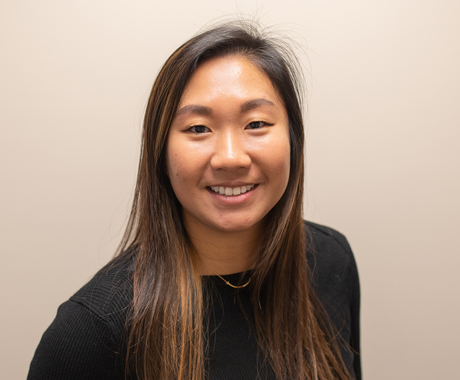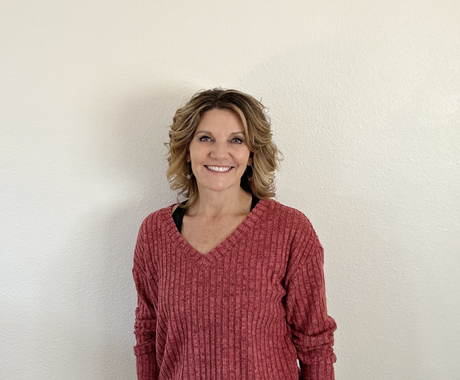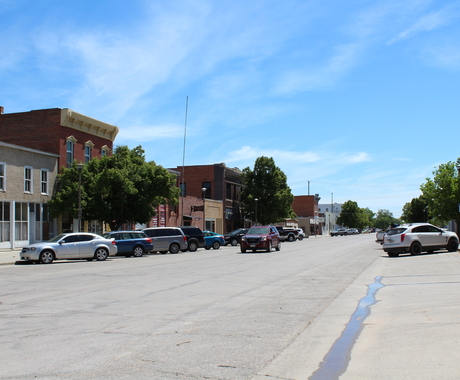Published in the Norfolk Daily News on Oct. 6, 2022
Para versión en español haga clic aquí.
Rural Americans are well known for building caring communities and looking out for one another. That’s one of the reasons Leonor Fuhrer loves small-town living.
Having called rural areas home for most of her life, Leonor has found that the relationships and connections she’s built have been instrumental in her personal and professional growth.
She lives in Norfolk, Nebraska, with her husband, three daughters, and their puppy, and she works as the assistant vice president of community response for Nebraska Children and Families Foundation. She is also a contractor with the Center for Rural Affairs who supports outreach, organizing, and executing some of the organization's workshops, as well as assists with language accessibility in the Norfolk area.
“Rural communities like mine tend to be geographically isolated yet are close-knit, with community members relying on each other for help in times of need,” said Leonor. “We thrive on relationships.”
And, through all those relationships, Leonor has found that women are more likely to have a relational yet diverse approach to leadership styles, emphasizing shared power and more equitable opportunities.
As a woman in a leadership position, Leonor works with communities across the state and with state and national partners to build innovative, collaborative solutions so all Nebraska children, youth, and families can thrive.
At a local level, she’s able to engage, connect, and work with her community to address language and cultural barriers and celebrate diversity. Leonor also encourages and supports upcoming leaders, works alongside organizations to develop equitable access to services and opportunities, and more.
“I appreciate that I get to work in places where authenticity is encouraged and appreciated, where my passion for helping others, as well as my experience, my voice, and my skill sets are valued,” she said. “I aim to empower others to be able to feel the same in their work.”
Leonor credits her mentors for seeing her potential and encouraging her to continue on the path toward leadership.
“They empowered me and led me to embrace becoming an ever-evolving leader,” she said. “My integrity, authenticity, and receptivity have helped me tremendously. My personal and professional experiences, culture, and openness in sharing them have been a catalyst in self-empowerment.”
Also, finding ways to mix the things she’s passionate about into her work has been a driving force in her path toward community leadership.
“I have utilized every work opportunity to continuously grow and define a sense of purpose in my career,” Leonor said. “It took me a long time to feel confident and empowered enough to use my voice, and I appreciate the many people who lifted and encouraged me along the way. I strive to do the same for others.”
She also uses her experiences with the setbacks and challenges she faced over the years to help others overcome those hurdles if and when they may face them.
“Stereotypes and biases are challenging,” Leonor said. “For example, I tend to be incredibly empathetic, often called a ‘bleeding heart,’ and that can often be seen as a weakness. I embrace it as a solid skill, allowing me to be a better listener and communicator.”
Leonor has also experienced microaggressions based on her perceived age, name, income, background, culture, and ethnicity, although she remains hopeful society is becoming more culturally aware and diverse.
“As we call in awareness of these types of behaviors, we will continue to embrace and empower others,” she said. “When women become leaders, they provide incredible skills, diverse perspectives, and structural and cultural differences that create innovative solutions.”
Leonor is motivated to keep pushing forward, and she continues to work hard for her daughters and future generations of young women.
“I didn’t grow up seeing many women in leadership roles, especially women of color,” she said. “I see many more diverse women in leadership in this current generation, and I am glad that our younger generation gets to see themselves reflected. I hope that I can be a role model for our next generation of leaders.”
For those who feel like Leonor and hope to see diverse women making decisions across the board and at every level, she suggests continuing to work toward representation and diversity in community leadership. She also encourages women who are curious about taking on a leadership role in their community to step up and give it a chance.
“Simply put: Don’t make decisions about people without the people that it impacts at the table, equally and equitably represented and heard,” said Leonor. “Find what drives you, use every opportunity to grow yourself, do good for others in any way you can, and embrace who you are and the people who empower you.”
If you are interested in becoming involved in leadership roles in your rural Nebraska community, the Center for Rural Affairs will be launching a women in leadership group to help women develop their leadership skills and selves to gain confidence in leadership roles. For more information, contact Nina Lanuza at 402.380.0785 or [email protected].





